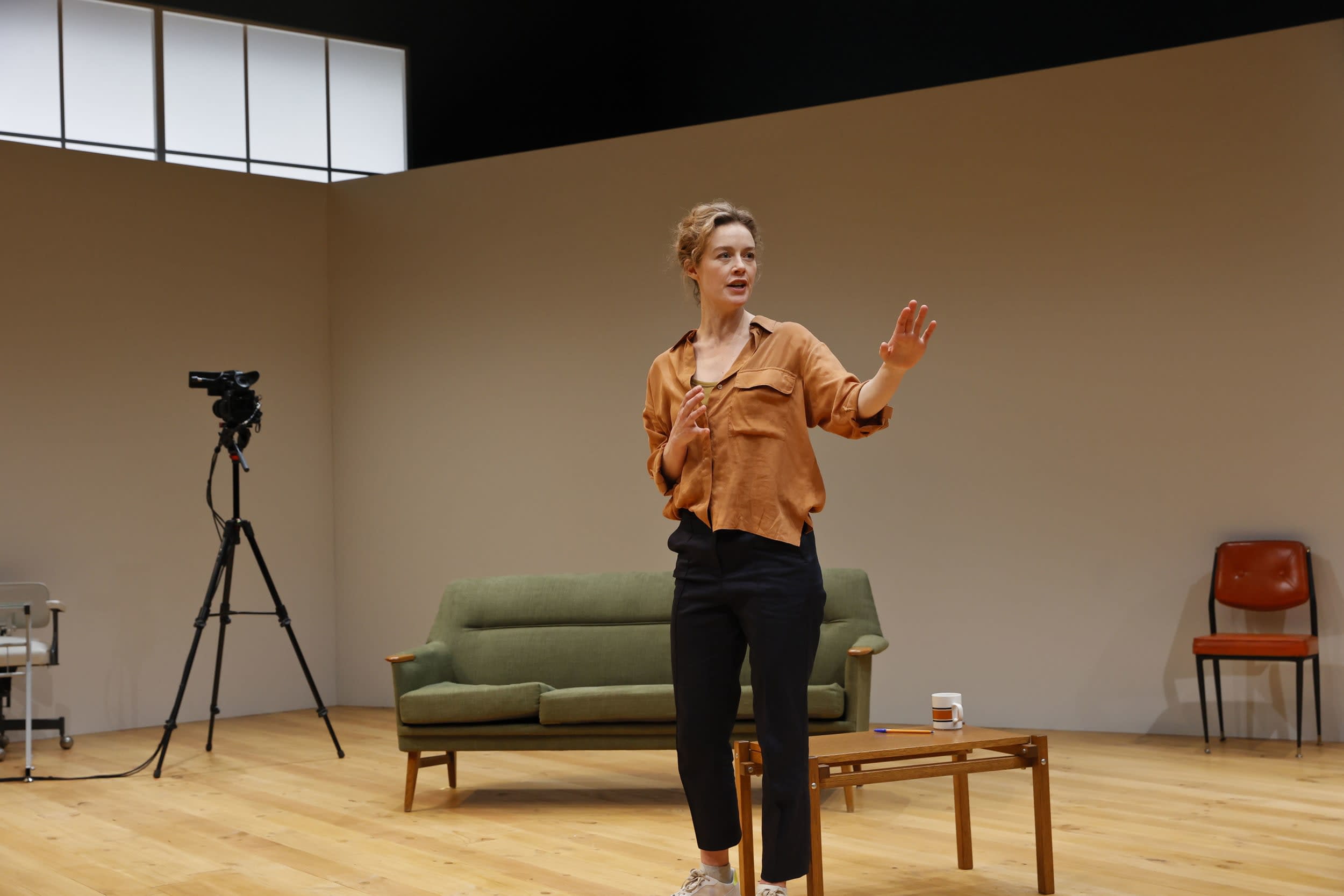Kate Champion: What drew you to the play in the first instance?
Nikki Shiels: Two things. Firstly, the theatrical challenge of a single woman holding the audience’s attention as she tracks the events leading up to the most significant event in her life. Secondly, the content and how the play offers an insight into the personal experience of a tragic event that we often receive via the news, detached from the private sphere of those involved. I love how the play uses storytelling and imagination to burrow into this subject matter and interrogate how it plays out beyond the media.
Kate: I had an instant and complete attraction to the character. I wanted to hang out with this woman, to bask in her wit, her charm and her disarming honesty. She had me at the first line of the play – or rather Dennis Kelly did. Beyond that I’ve also, like you, always been fascinated with how one person can hold our attention on stage. Ultimately though, I was drawn to a story that has at its centre an extraordinary experience of grief by a character who refuses to embody the clichés society often places on people who are in extreme grief. I’m interested in how we do – and don’t – allow people to share their painful loss and how we all learn how to live with it.
‘I love how the play uses storytelling and imagination to burrow into this subject matter and interrogate how it plays out beyond the media.’ – Nikki Shiels
Nikki: What were your thoughts behind the form and the way to realise the mode of telling this story?
Kate: As I read and re-read the play I came to think of the process that the character was going through as a physical form of diarising. Yes, she’s retelling her story to us the audience, but at the same time she’s conducting a kind of archaeological dig into her own emotional history. In fact it was the notion of rehearsing her memories to process reason, to understand her role in the events that came to pass, that ultimately inspired how we found the form of the piece.

Nikki Shiels in Girls & Boys. Photo: Jeff Busby
Nikki: As the performer, I am very focused on the language Dennis Kelly gives the protagonist, and the journey she embarks on to begin to articulate the unspeakable. The tension between her eloquence and vulgarity, her humour and her gravitas and the persuasiveness of her arguments. Formally, in rehearsals I have been fascinated by the character’s double trajectory of delving into the heightened theatrical space of her imagination alongside the unfolding present as she engages directly with the audience. It’s thrilling to be exploring and making theatre that demands such attention to the present by way of the past as the play moves towards its climax.
‘Translating an imagined interpretation of this uncomfortable issue to theatrical form … offers an opportunity to engage with and question why it still happens.’ – Kate Champion
Nikki: Why this piece? Why now?
Kate: This play at this time because, unfortunately, the story it tells is a tragedy that continues to repeat itself in reality to this day. Translating an imagined interpretation of this uncomfortable issue to theatrical form and thereby a public forum offers an opportunity to engage with and question why it still happens.

Director Kate Champion during rehearsals for Girls & Boys. Photo: Charlie Kinross
Nikki: The play examines extreme male violence in our contemporary world by way of a female character. The play is also written by a man giving voice to a woman’s experience of this male violence. This is an interesting tension to hold and wrestle with as artists. And in no way does Dennis Kelly’s writing shy away from the gravitas of its subject matter. In our production, we are interested in interrogating the complexities of male violence in society and making space for audiences to engage with the questions that Kelly’s play poses.
Girls & Boys is on stage until 26 November at Arts Centre Melbourne.
This production contains frequent coarse language, mature themes and descriptions of graphic violence and suicide. For detailed information about the production’s content click here.
If you or someone you know needs information or support, call 1800 RESPECT (1800 737 732) or visit 1800RESPECT.org.au. For mental health support, call 1300 22 4636 or visit beyondblue.org.au.
Published on 27 October 2022





